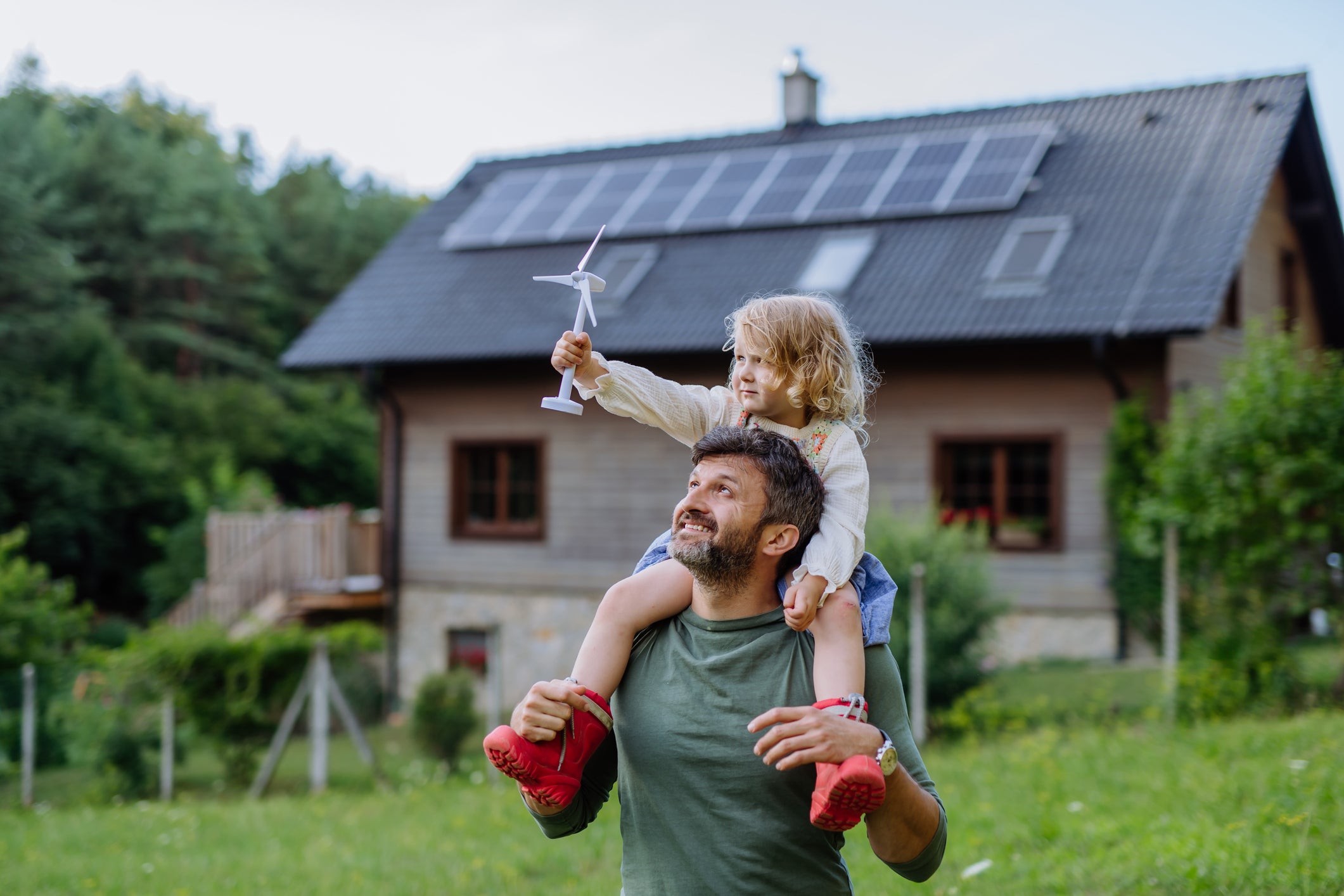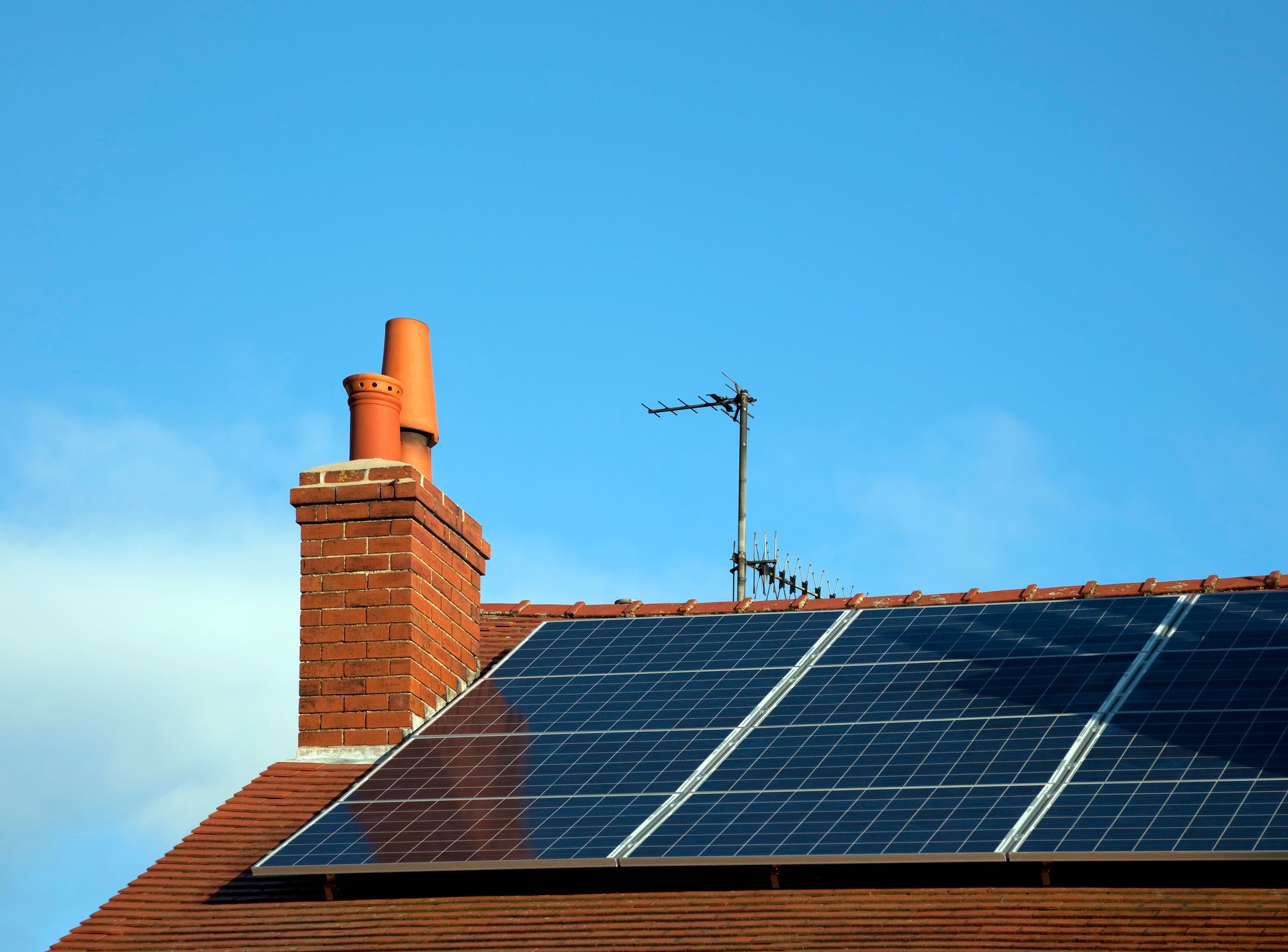7 myths about solar panels in the UK and the truth behind them
Homeowners are installing solar panels in increasing numbers and reaping the financial and environmental benefits. But some are still hesitant because of myths around cost, performance and durability of panels. Here, we debunk the most common myths so that you have all the facts you need before you pivot to panels


They don’t work when the sun isn’t shining
Solar panels are most efficient on sunny days, particularly around noon, when the sun is at its highest point and clear skies provide vast amounts of daylight, but they are still able to generate electricity when the weather is cold or even cloudy during the winter months. The reason for this is that panels are made up of solar photovoltaic cells (pv) that generate electricity from light across the light spectrum, including wavelengths that are invisible to the human eye and pass through clouds, as well as visible sunlight.
Solar panels are expensive to install
The cost of installing panels onto your roof varies depending on the type and number of panels, your choice of installer and where in the UK you live. A six-panel system can be installed for around £5,000, but you can expect your panels to last for 25 years. Typically, your manufacturer will provide you with a guarantee, meaning that any repairs or maintenance should be covered for their entire lifespan. Beyond that initial cost, you could also make money from any excess solar energy your panels generate. This energy can be sold back to the grid via a Smart Export Guarantee scheme. This provides you with a guaranteed fixed fee per unit of electricity you sell back to the grid over a fixed time period.
You need planning permission
Unlike house extensions, solar panels are classed as a ‘permitted development’ meaning you shouldn’t have to worry about applying to your local council or housing authority for planning permission to install panels onto your home. However, there are some exceptions. If you’re not the homeowner, you’ll need permission from your landlord and if you own a property within a block of flats, you’ll need to speak to your relevant authority, for example your building management company. Once you have permission, you then need to register your solar system with your Distribution Network Operator to connect it to the grid.
Solar panels will damage my roof

Solar panels are mounted onto your roof, so you don’t need to be concerned about damage caused by drilling large holes into your tiles. Panels could actually help to protect your roof by preventing wear and tear caused by rain, snow and debris lashing against them during bad weather. Any gaps between the roof and the panels are usually covered up by sealant, preventing the build-up of dirt underneath. In the event that your roof is already damaged prior to the installation of panels, it’s best to fix this problem first to avoid the excess weight of the panels causing any additional issues.
It’s difficult to sell your home if it has solar panels
It’s likely to be quite the opposite. Research shows that homes with solar panels and other energy saving technologies are in high demand. In 2022, insurance firm Admiral Money surveyed 2000 UK homeowners and found that 76% would be more likely to buy a property if it had energy saving measures. In addition to that, an average of 24% of those surveyed said they’d be willing to pay more money for a property with an EPC (energy efficiency) rating of C or above. A solar energy system can considerably improve a property’s EPC rating.
Panels are bad for the environment
Untrue. As well as having an average lifespan of 25 years, panels can be easily recycled once they need to be replaced. Some manufacturers will also take care of recycling them for you free of charge. You can see or ask for this to be part of your solar panel installation agreement when you choose your manufacturer and installation company. And, solar energy from panels is 100% renewable, meaning you don’t need to burn carbon-emitting fossil fuels to generate energy, which is good news for the long term health of the planet.
They are easily damaged in bad weather
Panels are built to last. Panels are made of steel, silicon and toughened safety glass. They also have no moving parts and are mounted onto your roof, meaning the weather would have to be incredibly volatile to dislodge and damage them. Panels also undergo rigorous testing under various conditions during the manufacturing process to ensure they can stand up to harsh weather, including hurricanes, hail, snow and rain.
Ready to power up your home with E.ON Next’s smart energy tech? Visit E.ON Next to learn more


